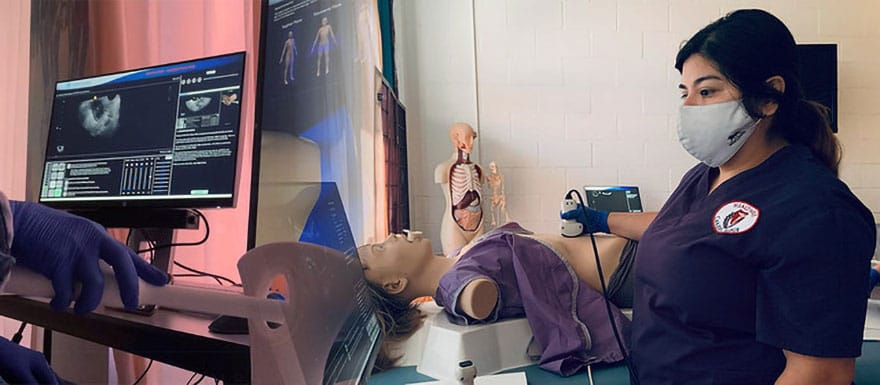Introduction to Ultrasound Technology
Ultrasound technology has revolutionized the field of healthcare by providing non-invasive imaging techniques www.german-seo.com/ that aid in diagnosis and treatment. Utilizing sound waves to create images of internal organs, tissues, and blood flow, ultrasound has become indispensable in various medical specialties.
Role of an Ultrasound Technician
Ultrasound technicians, also known as diagnostic medical sonographers, play a crucial role in the healthcare system. Their responsibilities include operating ultrasound equipment, capturing images, analyzing findings, and communicating results to physicians. To excel in this profession, individuals need a combination of technical skills, medical knowledge, and compassion for patients.
Education and Training Requirements
Becoming an ultrasound technician typically requires a combination of high school education, postsecondary training, and certification. While some employers may accept candidates with only a high school diploma, most prefer applicants with formal education from accredited ultrasound programs. These programs often include coursework in anatomy, physiology, patient care, and ultrasound physics, along with supervised clinical training.
Choosing the Right Ultrasound Program
When selecting an ultrasound program, it’s essential to consider factors such as accreditation, curriculum, and clinical experience. Accredited programs adhere to high standards of education and training, ensuring graduates meet industry requirements for certification and licensure. Additionally, a well-rounded curriculum and ample opportunities for hands-on experience are crucial for developing the skills needed in the field.
Gaining Clinical Experience
Clinical experience is a vital component of ultrasound education, providing students with practical skills and exposure to real-world scenarios. Many programs offer internships or externships at hospitals, clinics, or imaging centers, where students work under the supervision of experienced sonographers. This hands-on training is invaluable for honing ultrasound techniques and developing professional competencies.
Obtaining Certification and Licensing
After completing their education and clinical training, ultrasound technicians must obtain certification from organizations such as the American Registry for Diagnostic Medical Sonography (ARDMS). Certification demonstrates competence in the field and may be required by employers or state licensing boards. Additionally, some states have specific licensure requirements for practicing sonographers.
Continuing Education and Professional Development
The field of ultrasound technology is constantly evolving, with new advancements and techniques emerging regularly. To stay current and maintain their credentials, ultrasound technicians must engage in continuing education and professional development activities. This may include attending conferences, pursuing advanced certifications, or participating in online courses.
Job Outlook and Salary
The demand for ultrasound technicians is expected to grow significantly in the coming years, driven by an aging population and advances in medical technology. According to the Bureau of Labor Statistics, employment of diagnostic medical sonographers is projected to increase by 12% from 2020 to 2030. Additionally, the average salary for ultrasound technicians varies depending on factors such as location, experience, and specialty.
Tips for Success in the Field
Success as an ultrasound technician requires more than just technical proficiency. Effective communication skills, attention to detail, and empathy for patients are essential qualities for thriving in this profession. Building strong relationships with colleagues and staying updated on industry developments can also contribute to long-term success.
Advancements in Ultrasound Technology
The field of ultrasound technology is rapidly advancing, with innovations such as 3D and 4D imaging, contrast-enhanced ultrasound, and portable ultrasound devices transforming medical imaging capabilities. These advancements have the potential to improve diagnostic accuracy, enhance patient care, and expand the scope of ultrasound applications in healthcare.
Challenges Faced by Ultrasound Technicians
Despite the rewards of working in healthcare, ultrasound technicians may encounter challenges such as heavy workloads, demanding schedules, and technological complexities. Adapting to new equipment and protocols, managing stress, and maintaining work-life balance are ongoing considerations for sonographers.
Work-Life Balance
Like many healthcare professionals, ultrasound technicians often juggle demanding work schedules with personal commitments. Finding a balance between work and leisure activities is essential for avoiding burnout and maintaining overall well-being. Strategies such as time management, self-care practices, and support from colleagues can help achieve a healthy work-life balance.
Networking and Professional Associations
Joining professional associations such as the Society of Diagnostic Medical Sonography (SDMS) or the American Institute of Ultrasound in Medicine (AIUM) can provide valuable networking opportunities and resources for career development. Connecting with peers, attending conferences, and participating in industry events can broaden professional connections and enhance career prospects.
Conclusion
Becoming an ultrasound technician is a rewarding career choice that offers opportunities for personal and professional growth. By pursuing quality education, gaining practical experience, and staying updated on industry trends, individuals can embark on a fulfilling journey in healthcare.
